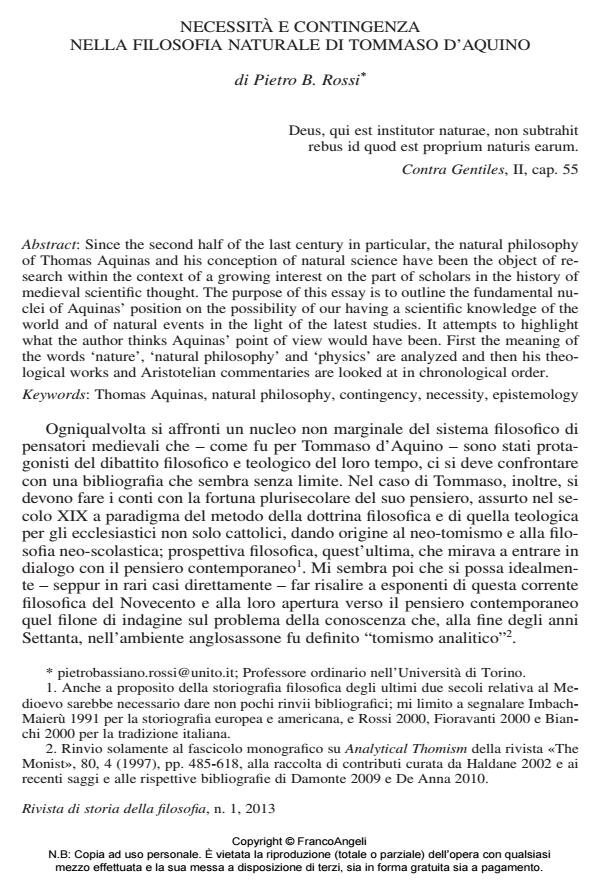Necessità e contingenza nella filosofia naturale di Tommaso d’Aquino
Titolo Rivista RIVISTA DI STORIA DELLA FILOSOFIA
Autori/Curatori Pietro B. Rossi
Anno di pubblicazione 2013 Fascicolo 2013/1
Lingua Italiano Numero pagine 17 P. 95-111 Dimensione file 502 KB
DOI 10.3280/SF2013-001006
Il DOI è il codice a barre della proprietà intellettuale: per saperne di più
clicca qui
Qui sotto puoi vedere in anteprima la prima pagina di questo articolo.
Se questo articolo ti interessa, lo puoi acquistare (e scaricare in formato pdf) seguendo le facili indicazioni per acquistare il download credit. Acquista Download Credits per scaricare questo Articolo in formato PDF

FrancoAngeli è membro della Publishers International Linking Association, Inc (PILA), associazione indipendente e non profit per facilitare (attraverso i servizi tecnologici implementati da CrossRef.org) l’accesso degli studiosi ai contenuti digitali nelle pubblicazioni professionali e scientifiche.
Since the second half of the last century in particular, the natural philosophy of Thomas Aquinas and his conception of natural science have been the object of research within the context of a growing interest on the part of scholars in the history of medieval scientific thought. The purpose of this essay is to outline the fundamental nuclei of Aquinas’ position on the possibility of our having a scientific knowledge of the world and of natural events in the light of the latest studies. It attempts to highlight what the author thinks Aquinas’ point of view would have been. First the meaning of the words ‘nature’, ‘natural philosophy’ and ‘physics’ are analyzed and then his theological works and Aristotelian commentaries are looked at in chronological order.
Parole chiave:Thomas Aquinas, natural philosophy, contingency, necessity, epistemology
Pietro B. Rossi, Necessità e contingenza nella filosofia naturale di Tommaso d’Aquino in "RIVISTA DI STORIA DELLA FILOSOFIA" 1/2013, pp 95-111, DOI: 10.3280/SF2013-001006